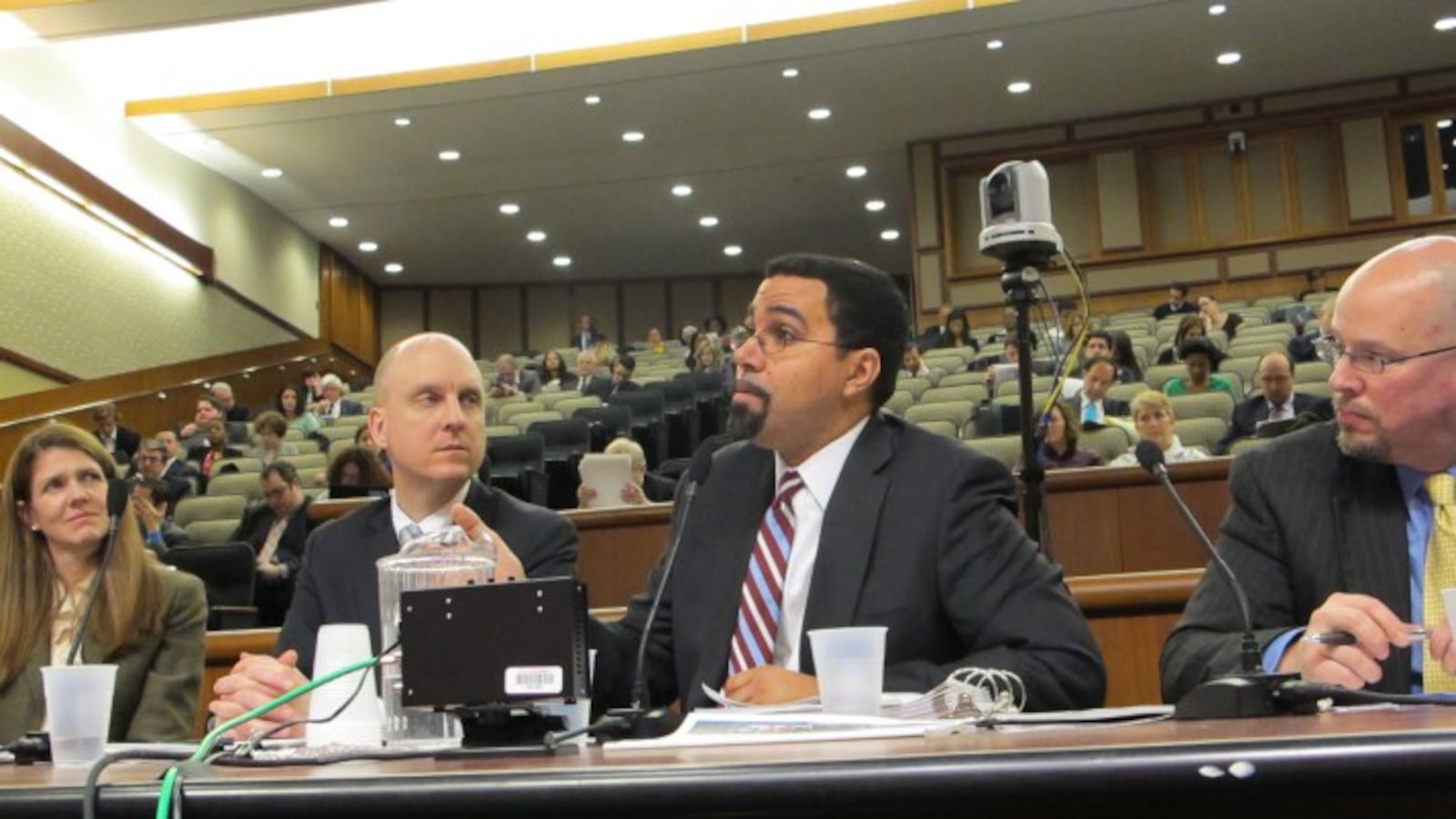New York’s rollout of the new Common Core standards is experiencing a second setback in a week as education policy makers today recommend scaling back what high school students must do to graduate.
The Board of Regents subcommittee charged to review the state’s Common Core implementation is suggesting a five-year “extension” of plans to tie high school graduation to scores on tougher state Regents exams. High school students would still have to pass Common Core exams starting this year under the recommendation, but they wouldn’t have to hit a benchmark billed as signifying “college readiness” until 2022.
Officials said they hope the “extension” proposal would assuage concerns that the State Education Department, led by Commissioner John King since 2011, has moved too quickly in implementing the Common Core. The state formally adopted the standards in 2010 and began testing students in elementary and middle school on them last year. Lower test scores fueled dozens of contentious public forums across the state.
The recommendation follows a call last week from state legislators on both sides of the aisle to delay tying Common Core test scores to teacher evaluations for at least two years.
That push, which caused Gov. Andrew Cuomo to criticize the Regents’ Common Core implementation, is noticeably absent from the Regents’ recommendations. The six-member committee — which was made up of King, Board of Regents Chancellor Merryl Tisch and four other Regents — is not calling for a delay, which would require a significant change to the state’s teacher evaluation law.
Instead, the committee is recommending a smaller change to regulations that guide the law, which members said would give teachers who are deemed ineffective two years in a row extra protection. If districts move to fire such teachers, as state law allows, the teachers could use the district’s handling of the Common Core implementation as evidence in their defense that they weren’t adequately prepared to help students meet the standards. That defense would apply only to the student growth portion of the evaluations, not to the subjective measures such as principal evaluations that make up 60 percent of each teacher’s annual rating.
The recommended change to the graduation standard wouldn’t require any legal tweaks. Instead, the education department would set multiple thresholds for high school state test scoring. The top level would demonstrate “mastery” of the content. Another level would demonstrate college preparation and a third level, similar to what is a 65 on the current Regents exams, would still be good enough for graduation.
There would also be a “safety net” level, similar to the 55 that students with disabilities are allowed to earn on current tests.
In all, the committee is recommending 19 changes, many of which have been floated before in recent months. They include limitations on what kinds of assessments can be used in early elementary grades, extra funding for professional development, and federal testing waivers for high-needs students.
In one key recommendation, the subcommittee suggests limiting the amount of time that students spend on testing for teacher evaluations to 1 percent of their classroom time in school. In another, it recommends prohibiting districts from using state test scores as the sole determinant of whether a student is promoted to the next grade — a practice that New York City has in place but is likely to drop under Mayor Bill de Blasio, who has said he wants to diminish the role of testing in city schools.
The full Board of Regents will discuss the recommendations this week. The report from the subcommittee is below.

